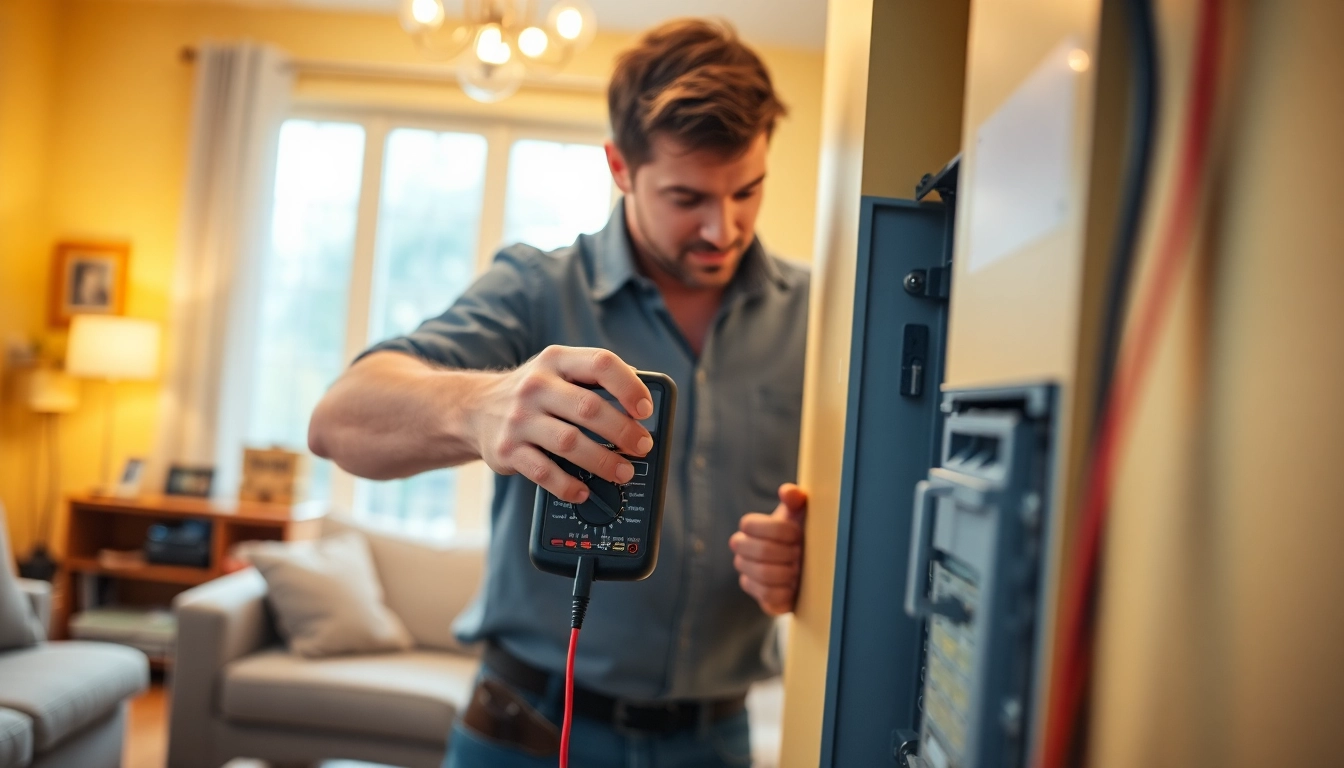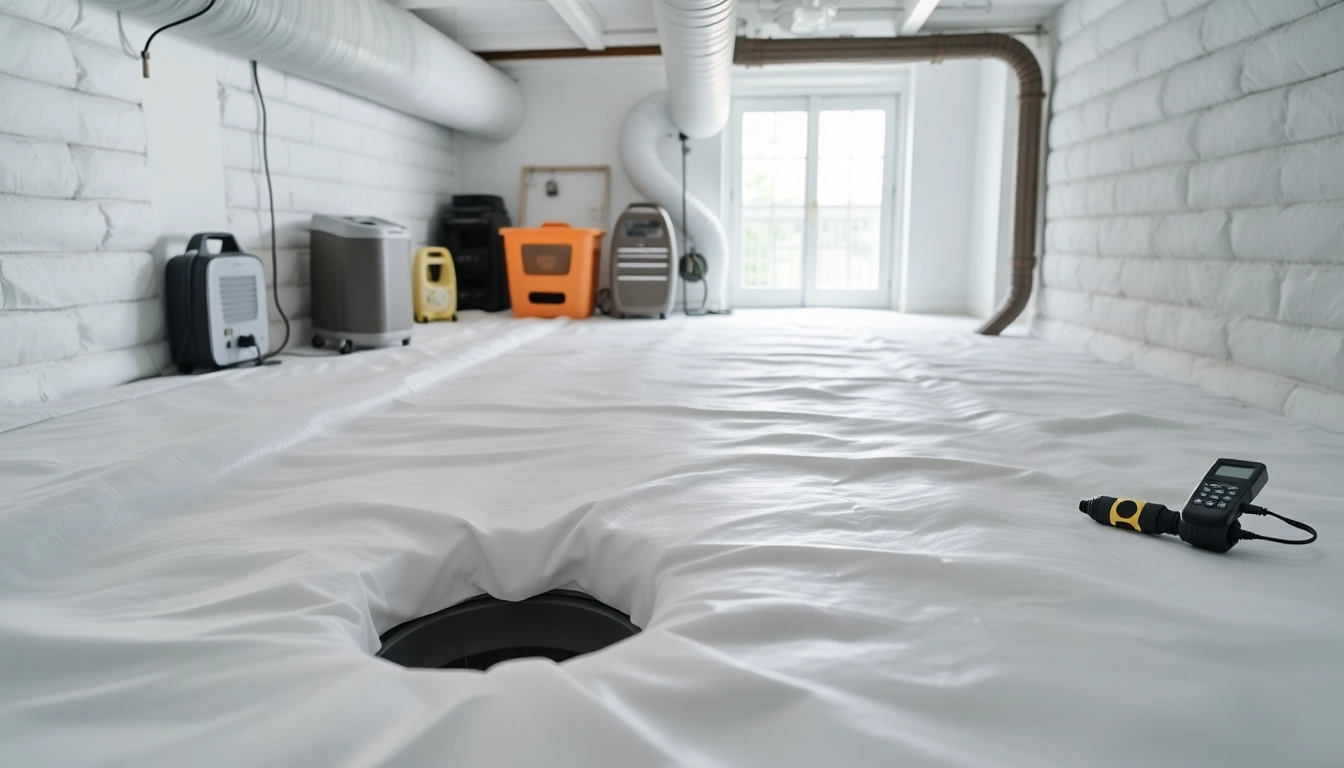Understanding the Importance of Electrical Home Inspection for Safe Living
What is Electrical Home Inspection?
Definition and Purpose
An electrical home inspection is a detailed examination of a home’s electrical system to identify potential safety hazards, inefficiencies, and code violations. This examination is an essential aspect of property maintenance and is often conducted before selling or buying a home. The primary purpose of an electrical home inspection is to ensure the safety of occupants and to maintain the integrity and functionality of electrical installations.
Common Issues Identified
During an electrical home inspection, several common issues may be identified that could pose safety risks. These include:
- Faulty wiring: Deteriorated or improperly installed wiring can lead to shorts or fires.
- Inadequate grounding: A lack of proper grounding systems can increase shock hazards.
- Overloaded circuits: Circuits that carry too much load can cause breakers to trip frequently or may even lead to electrical fires.
- Non-compliance with code: Many homes have outdated electrical systems that do not meet current safety codes.
- Improperly installed fixtures: Lighting and outlet installations that do not adhere to safety standards can cause malfunctions or fires.
The Role of an Inspector
Electrical inspectors are trained professionals who evaluate and assess the wiring and electrical components of a home. They conduct thorough examinations, utilizing specialized tools and techniques to identify deficiencies and provide solutions. An inspector’s role goes beyond just spotting problems; they educate homeowners about safe practices, necessary repairs, and how to best maintain their electrical systems.
Why Electrical Home Inspection Matters
Safety Risks and Hazards
Neglecting electrical home inspections can lead to hazardous situations, including electrical shocks, fires, and injuries. Faulty wiring can easily go unnoticed until it becomes a significant issue, putting families at risk. Conducting an electrical home inspection helps identify these potential dangers before they escalate into life-threatening scenarios.
Insurance Benefits
Many insurance companies offer lower premiums or more favorable terms to homes that have undergone recent electrical inspections. These inspections can demonstrate to insurers that a home meets safety standards, which reduces the risk of claims related to electrical fires or accidents. It’s beneficial for homeowners to provide their insurers with updated inspection reports.
Enhancing Property Value
A thorough electrical home inspection can enhance the overall value of a property. When potential buyers see that an inspection has been completed and any necessary upgrades have been implemented, they might be more inclined to proceed with the purchase. This assurance of safety and compliance can set a home apart in a competitive market.
Steps Involved in an Electrical Home Inspection
Pre-Inspection Procedures
Before an electrical inspection occurs, homeowners should prepare by gathering relevant documents such as previous inspection reports, electrical plans, and any records of recent upgrades. It’s advisable to ensure accessibility to all electrical components throughout the home, including the attic and basement, where wiring may be present.
During the Inspection
During the inspection, several key areas are evaluated:
- Service entrance and panel: Inspectors examine the service panel for signs of corrosion, rust, or obsolete circuit breakers.
- Wiring and circuits: A thorough check for damaged, frayed, or improperly installed wiring is conducted.
- Grounding systems: Inspectors verify adequate grounding and bonding of the electrical system.
- Outlets and switches: Presence of GFCI (Ground Fault Circuit Interrupter) outlets in kitchens and bathrooms and ensuring all outlets are functioning correctly.
Post-Inspection Follow-Up
Following an inspection, homeowners typically receive a detailed report outlining the findings. This report not only lists identified issues but also provides recommendations for repairs or upgrades. In many cases, the inspector will suggest a follow-up inspection after the necessary repairs have been made to confirm that the home meets safety standards.
Choosing the Right Professional for Electrical Home Inspection
Qualifications to Look For
When selecting an electrical home inspector, it is crucial to consider their qualifications. Look for professionals who are licensed, certified, and experienced in residential electrical systems. Inspectors should ideally possess knowledge of local codes and regulations as well as ongoing training to stay current with industry standards.
Questions to Ask
Homeowners should engage potential inspectors with questions that gauge their expertise, such as:
- What is your experience in conducting electrical inspections?
- Can you provide references from previous clients?
- What is included in your inspection report?
- Do you offer any warranty for your work?
Understanding Inspection Reports
A thorough inspection report should clearly outline the findings, including any deficiencies, code violations, and recommendations for remediation. Homeowners should be able to understand the report without technical jargon. If anything is unclear, it is essential to ask the inspector for clarification.
Maintaining Electrical Systems Post-Inspection
Regular Maintenance Tips
After undergoing an electrical home inspection, homeowners should adopt regular maintenance practices to maintain their systems. This includes:
- Regularly checking appliances for overheating.
- Inspecting outlets and switches for wear and tear.
- Keeping the service panel clean and uncluttered.
- Scheduling routine inspections every few years to ensure systems remain up to code.
When to Schedule Follow-Up Inspections
Homeowners should schedule follow-up inspections whenever significant electrical work is completed or if new electrical appliances are added. It’s also advisable to have an inspection after extreme weather events that may pose risks, such as storms or flooding.
Emergency Preparedness for Electrical Issues
Being prepared for electrical emergencies is crucial for safety. Homeowners should know how to shut off power quickly, have fire extinguishers accessible, and create an emergency plan that includes evacuation routes in case of electrical fires.














Post Comment